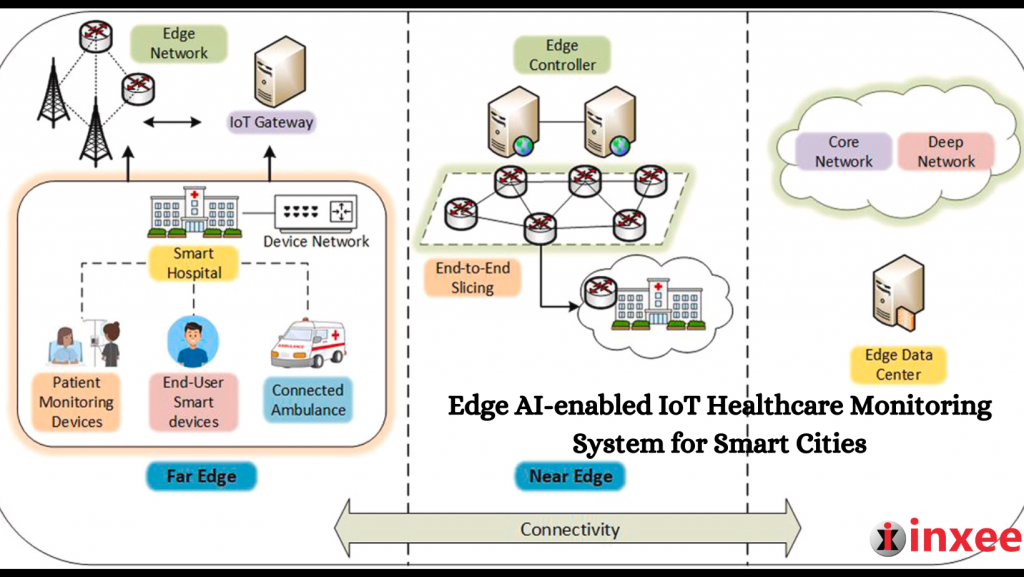Edge AI-Enabled IoT Healthcare Monitoring System for Smart Cities

An edge AI-enabled IoT healthcare monitoring system for smart cities is a solution that leverages edge computing and artificial intelligence (AI) technologies to monitor and manage healthcare data in real-time. It involves the integration of IoT devices, edge computing devices, and AI algorithms to enable efficient and accurate healthcare monitoring and decision-making. Here’s how such a system works:
IoT Devices: The system incorporates various IoT devices such as wearable sensors, health monitoring devices, and medical equipment. These devices collect real-time data related to vital signs, patient activities, medication adherence, and other relevant health metrics.
Edge Computing: Edge computing devices are deployed at the network edge, closer to the data source, to process and analyze the healthcare data locally. These devices have computing power and storage capabilities, enabling faster processing and reduced latency.
AI Algorithms: The system utilizes AI algorithms, including machine learning and deep learning, to analyze the collected healthcare data. These algorithms can identify patterns, detect anomalies, predict health risks, and provide personalized insights for healthcare providers and individuals.
Real-time Monitoring: The system continuously monitors the health data in real-time, ensuring prompt detection of any abnormalities or critical events. It can generate alerts or notifications to healthcare professionals, caregivers, or the individuals themselves, enabling timely intervention and support.
Data Privacy and Security: The system incorporates robust security measures to protect the sensitive healthcare data. Encryption, authentication, access control, and secure communication protocols are implemented to ensure data privacy and compliance with regulatory requirements.
Seamless Integration: The system can integrate with existing healthcare infrastructure, electronic health records (EHR) systems, and healthcare management platforms to provide a comprehensive healthcare ecosystem. It enables seamless data exchange and interoperability among different stakeholders involved in patient care.
Benefits of an edge AI-enabled IoT healthcare monitoring system for smart cities include:
Improved Healthcare Accessibility: Individuals can receive healthcare services remotely, reducing the need for frequent hospital visits and enabling better access to healthcare in remote or underserved areas.
Personalized and Proactive Care: AI algorithms can analyze individual health data to provide personalized recommendations, preventive measures, and early intervention strategies, promoting proactive healthcare management.
Efficient Resource Allocation: Real-time monitoring and analysis enable healthcare providers to allocate resources effectively, optimize healthcare workflows, and prioritize high-risk cases.
Enhanced Patient Experience: With continuous monitoring and timely intervention, individuals can experience improved healthcare outcomes, reduced hospital stays, and better quality of life.
Population Health Management: Aggregated and anonymized data from the system can contribute to population-level health analysis, helping policymakers and healthcare authorities make informed decisions for public health initiatives.
In summary, an edge AI-enabled IoT healthcare monitoring system in smart cities leverages the power of edge computing and AI algorithms to provide real-time, personalized, and proactive healthcare services, ultimately enhancing healthcare outcomes and improving the overall well-being of individuals in smart city environments.









Leave a Reply